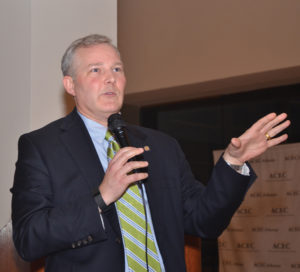By Steve Brawner
© 2016 by Steve Brawner Communications, Inc.
Fidel Castro is dead. How does that affect people in Arkansas? Maybe a lot, especially if they work in the rice industry or are elected to represent people who do.
Cuba’s 11 million people import 400,000 tons of rice each year, mostly from Vietnam, which means the rice arrives after a long boat ride from a country on the other side of the globe. Rep. Rick Crawford’s eastern Arkansas 1st District includes half of America’s rice acreage, so it’s understandable that his reaction to Castro’s death focused on the future, not the past.
“Fidel Castro’s death is an opportunity for America to end its ineffective policies so we can influence the future direction of that nation,” he tweeted, then added, “Through my own visits to Cuba I’ve seen people ready for change. With Fidel dead, America needs to help lead Cuba toward a better future.”
Crawford for some time has been an outspoken supporter of prying open Cuba’s markets, which have been largely closed since Oct. 19, 1960, because of the American trade embargo. He’s pushed legislation to allow Cubans to purchase agricultural products on credit rather than the currently required cash, of which Cubans don’t have much, so they could replace that Vietnamese rice with fresher, cheaper rice grown here.
Two other Arkansas officials who represent those same eastern Arkansas agricultural producers (and voters) took a similar forward-looking approach. Sen. John Boozman tweeted, “I hope the death of Fidel Castro marks a new beginning for an American-Cuban partnership and brings light to democracy in #Cuba.” Speaking to reporters, Gov. Asa Hutchinson called Castro’s death a “moment that I believe needs to be seized.”
President-elect Donald Trump said he would terminate the current opening with Cuba initiated by President Obama unless Cuba makes a better deal for its own people, for Cuban-Americans, and for the United States. That threat may have just been the country’s new dealmaker-in-chief doing what he does, which is start the negotiating process by taking a hard line and then moving away from it.
In response, the governor said Trump’s stance is “understandable,” but while change must be accompanied by enhanced freedom for Cubans, “I hope that we do not go back to the simple, straightforward, rigid embargo that we have tried for 50-plus years.”
Hutchinson and Boozman represent the state while Crawford represents his district, so their remarks were meant for those audiences. Sen. Tom Cotton has an additional audience – a national one. It includes many people who, like him, have argued that this thawing of relations between America and Cuba will only help the Castro regime. Cotton released a two-sentence comment focused on the past, except for one assertion of Castro’s future: “Fidel Castro created hell on earth for the Cuban people. He will now become intimately familiar with what he wrought.”
Count me with Crawford, Boozman and Hutchinson on this one. The American people are supposed to be practical-minded problem-solvers who, when something doesn’t work, try something else. We’re the country where Thomas Edison invented the light bulb through experimentation, failure and more experimentation. And yet when it comes to its Cuba policy, we’ve stubbornly tried the same thing for 56 years that clearly didn’t work. Only old age and death, not the American trade embargo, removed Castro from power. Now his brother, Raul, remains in charge. He’s 85, by the way.
Pry open the doors to Cuba, let in a little freedom, and see what happens. Arkansas rice will be more than just an item on the dinner table. It will be a taste of what a free market economy offers. As Cuba opens itself to visitors from Arkansas and elsewhere, it will not be able to choke off ideas that are contrary to its glorious revolution. Fifty-five years after the failed Bay of Pigs invasion, an army of businessmen, tourists and missionaries will descend on an island 90 miles from Florida, accomplishing what the embargo never could.
Somebody’s going to sell rice to the Cubans, and when they do they’ll also export their ideas and way of life. Currently, that exporter is Vietnam, another repressive communist regime. I think Arkansas offers a better deal.

